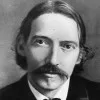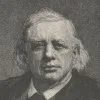What an art it is, to give, even to our nearest friends! and what a test of manners to receive! How, upon either side, we smuggle away the obligation, blushing for each other; how bluff and dull we make the giver; how hasty, how falsely cheerful, the receiver! and yet an act of such difficulty and distress between near friends, it is supposed we can perform to a total stranger and leave the man transfixed with grateful emotions. The last thing you can do to a man is to burthen him with an obligation, and it is what we propose to begin with! But let us not be deceived: unless he is totally degraded to his trade, anger jars in his inside, and he grates his teeth at our gratuity.
We should wipe two words from our vocabulary: gratitude and charity. In real life, help is given out of friendship, or it is not valued; it is received from the hand of friendship, or it is resented.Robert Louis Stevenson (1850-1894) Scottish essayist, novelist, poet
Essay (1888-03), “Beggars,” sec. 4 Scribner’s Magazine, Vol. 3, No. 3
(Source)
Collected in Across the Plains, ch. 9 (1892).
Quotations about:
giving
Note not all quotations have been tagged, so Search may find additional quotes on this topic.
Give of thy gold, though small thy portion be.
Gold rusts and shrivels in the hand that keeps it.
It grows in one that opens wide and free.
Who sows his harvest is the one who reaps it.Ella Wheeler Wilcox (1850-1919) American author, poet, temperance advocate, spiritualist
Poem (1901), “Give,” st. 3, New Thought Pastels (1906)
(Source)
Cadfael was not of the opinion that a man’s main business in this world was to save his own soul. There are other ailing souls, as there are ailing bodies, in need of a hoist towards health.
Ellis Peters (1913-1995) English writer, translator [pseud. of Edith Mary Pargeter, who also wrote under the names John Redfern, Jolyon Carr, Peter Benedict]
The Confession of Brother Haluin, ch. 3 (1988)
(Source)
There are those who will thank you for what you gave them and others who will blame you for what you did not give them.
Nassim Nicholas Taleb (b. 1960) Lebanese-American essayist, statistician, risk analyst, aphorist
The Bed of Procrustes: Philosophical and Practical Aphorisms, “Ethics” (2010)
(Source)
Thare iz a grate deal ov charity in this world so koldly rendered that it fairly hurts, it iz like lifting a drowning man out ov the water bi the hair ov the hed, and then letting him drop on the ground.
[There is a great deal of charity in this world so coldly rendered that it fairly hurts. It is like lifting a drowning man out of the water by the hair of the head, and then letting him drop on the ground.]Josh Billings (1818-1885) American humorist, aphorist [pseud. of Henry Wheeler Shaw]
Everybody’s Friend, Or; Josh Billing’s Encyclopedia and Proverbial Philosophy of Wit and Humor, ch. 155 “Affurisms: Ink Lings” (1874)
(Source)
During one Lent a youthful vicar came to preach in the cathedral at Digne and did so with some eloquence. His theme was charity. He urged the rich to give to the poor so that they might escape the torments of Hell, which he depicted in hideous terms, and attain to Paradise, which he made to sound altogether delightful, Among the congregation was a Monsieur Geborand, a wealthy and grasping retired merchant, who had made a fortune in the cloth-trade but had never been known to give anything to the poor. It was observed, after this sermon, that on Sundays he handed a single sou to the old beggar-women clustered outside the cathedral door. There were six of them to share it. Noting the event, the bishop smiled and said to his sister: “Monsieur Geborand is buying a penny-worth of Paradise.”
[Pendant un carême, un jeune vicaire vint à Digne et prêcha dans la cathédrale. Il fut assez éloquent. Le sujet de son sermon était la charité. Il invita les riches à donner aux indigents, afin d’éviter l’enfer, qu’il peignit le plus effroyable qu’il put, et de gagner le paradis, qu’il fit désirable et charmant. Il y avait dans l’auditoire un riche marchand retiré, un peu usurier, nommé M. Géborand, lequel avait gagné deux millions à fabriquer de gros draps, des serges, des cadis et des gasquets. De sa vie M. Géborand n’avait fait l’aumône à un malheureux. À partir de ce sermon, on remarqua qu’il donnait tous les dimanches un sou aux vieilles mendiantes du portail de la cathédrale. Elles étaient six à se partager cela. Un jour, l’évêque le vit faisant sa charité et dit à sa sœur avec un sourire : — Voilà monsieur Géborand qui achète pour un sou de paradis.]
Victor Hugo (1802-1885) French writer
Les Misérables, Part 1 “Fantine,” Book 1 “An Upright Man,” ch. 4 (1.1.4) (1862) [tr. Denny (1976)]
(Source)
(Source (French)). Alternate translations:Once, during Lent, a young vicar came to D---, and preached in the cathedral. The subject of his sermon was charity, and he treated it very eloquently. He called upon the rich to give alms to the poor, if they would escape the tortures of hell, which he pictured in the most fearful colours, and enter that paradise which he painted as so desirable and inviting. There was a retired merchant of wealth in the audience, a little given to usury, M. Geborand, who had accumulated an estate of two millions in the manufacture of coarse cloths and serges. Never, in the whole course of his life, had M. Geborand given alms to the unfortunate ; but from the date of this sermon it was noticed that he gave regularly, every Sunday, a penny to the old beggar women at the door of the cathedral. There were six of them to share it. The bishop chanced to see him one day, as he was performing this act of charity, and said to his sister, with a smile, “See Monsieur Geborand, buying a pennyworth of paradise.”
[tr. Wilbour (1862)]During one Lent a young vicar came to D.... and preached at the cathedral. He was rather eloquent, and the subject of his sermon was charity. He invited the rich to give to the needy in order to escape hell, which he painted in the most frightful way he could, and reach paradise, which he made desirable and charming. There was among the congregation a rich retired merchant, somewhat of an usurer, who had acquired $400,000 by manufacturing coarse cloths, serges, and caddis. In his whole lifetime M. Géborand had never given alms to a beggar, but after this sermon it was remarked that he gave every Sunday a cent to the old beggars at the cathedral gate. There were six women to share it. One day the bishop saw him bestowing his charity, and said to his sister, with a smile, “Look at M. Géborand buying a bit of paradise for a cent.”
[tr. Wraxall (1862)]In the course of one Lent, a youthful vicar came to Digne, and preached in the cathedral. He was tolerably eloquent. The subject of his sermon was charity. He urged the rich to give to the poor, in order to avoid hell, which he depicted in the most frightful manner of which he was capable, and to win paradise, which he represented as charming and desirable. Among the audience there was a wealthy retired merchant, who was somewhat of a usurer, named M. Geborand, who had amassed two millions in the manufacture of coarse cloth, serges, and woolen galloons. Never in his whole life had M. Geborand bestowed alms on any poor wretch. After the delivery of that sermon, it was observed that he gave a sou every Sunday to the poor old beggar-women at the door of the cathedral. There were six of them to share it. One day the Bishop caught sight of him in the act of bestowing this charity, and said to his sister, with a smile, "There is M. Geborand purchasing paradise for a sou."
[tr. Hapgood (1887)]Once, during Lent, a young vicar came to Digne, and preached in the cathedral. The subject of his sermon was charity, and he treated it very eloquently. He called upon the rich to give alms to the poor, if they were to escape the tortures of hell, which he pictured in the most fearful colors, and enter paradise, which he portrayed as desirable and inviting. There was a wealthy retired merchant at the service, somewhat inclined to usury, a M. Geborand, who had accumulated an estate of two million from manufacturing coarse cloth and woolens. Never in all his life had M. Geborand given alms to the unfortunate; but from the day of this sermon it was noticed that regularly every Sunday he gave a penny to the old beggar women at the door of the cathedral. There were six of them to share it. One day the bishop, seeing him perform this act of charity, said to his sister with a smile, 'There's Monsieur Geborand, buying a pennyworth of paradise."
[tr. Wilbour/Fahnestock/MacAfee (1987)]Once, during Lent, a young vicar came to Digne and preached in the cathedral. He was quite eloquent. The subject of his sermon was charity. He urged the rich to give to the poor so to as avoid going to hell, which he depicted in the most dreadful terms he could, and to get to parasdise, which he represented as desirable and delightful. Among hsi audience was a somewhat tight-fisted retired wealthy merchant named Monsieur Géborand, who had amassed half a million in the manufacture of coarse cloth, serge, caddis and felt caps. Monsieur Géborand had never in his life been charitable to any poor unfortunate. After that sermon it was noticed he gave one sou every Sunday to the old beggar-women at the cathedral door. They had to share it between six of them. One day the bishop saw him making his donation and said to his sister with a smile, "There's Monsieur Géborand buying one sou's worth of paradise."
[tr. Donougher (2013)]
One should guard against preaching to the young man success in the customary sense as the aim of life. For a successful man is he who receives a great deal from this fellowmen, usually incomparably more than corresponds to his service to them. The value of a man, however, should be seen what he gives. and not in what he is able to receive.
Albert Einstein (1879-1955) German-American physicist
Speech (1936-10-15), Convocation of University of New York, Albany [tr. Arronet]
(Source)
Collected in "On Education" (1936), Out of My Later Years, ch. 9 (1950).
There are more who want to be loved than who want to love.
[Y a plus de gens qui veulent être aimés que de gens qui veulent aimer eux-mêmes.]Nicolas Chamfort (1741-1794) French writer, epigrammist (b. Nicolas-Sébastien Roch)
Products of Perfected Civilization [Produits de la Civilisation Perfectionée], Part 1 “Maxims and Thoughts [Maximes et Pensées],” ch. 6, ¶ 360 (1795) [tr. Merwin (1969)]
(Source)
(Source (French)). Alternate translations:There are more people who wish to be loved than there are who are willing to love.
[Source (<1884)]Men are more eager to be loved than anxious to love.
[tr. Mathers (1926)]There are more people who want to be loved than there are people who want to love.
[tr. Dusinberre (1992)]There are more people who want to be loved than people who want to love.
[tr. Siniscalchi (1994)]
Give all thou canst; high Heaven rejects the lore
Of nicely calculated less or more.William Wordsworth (1770-1850) English poet
“Inside of King’s College Chapel, Cambridge,” Ecclesiastical Sonnets, Part 3, # 43, ll. 6-7 (1822)
(Source)
For all you can hold in your cold dead hand
Is what you have given away.Joaquin Miller (1837-1913) American poet [pen name of Cincinnatus Heine (or Hiner) Miller]
“Peter Cooper (Died 1883),” ll. 11-12, In Classic Shades and Other Poems (1890)
(Source)
This phrasing of the sentiment seems to have been made by Miller, but the sentiment itself predates him in various ways. See, for example, Martial, Epigram 5.42 (AD 90): "You keep thus always what you gave."
Edward Gibbon, in his Decline and Fall of the Roman Empire,, ch. 61 (1776), notes the epitaph of 15th Century Earl Edward Courtenay of Devonshire:What we gave, we have;
What we spent, we had;
What we left, we lost.
Miller was himself quoted by Edwin M. Poteat, President of Furman University, in his poem "What You Have Given Away" (1909). Poteat put the phrase in quotation marks, but is sometimes still given full credit.
Elbert Hubbard may have been borrowing from Miller in his Little Journeys to the Homes of the Great, Vol. 12 "Great Scientists," "Haeckel" (collected in 1916, but published earlier), where he writes:We keep things by giving them to others. The dead carry in their clenched hands only that which they have given away; and the living carry only the love in their hearts which they have bestowed on others.
Finally, often in the variant form "All we can hold in our cold dead hands is what we have given away," the phrase is today often identified as a Sanskrit proverb. The universality of thought means it may well have an ancient Indian inspiration, but the language may indicate a tie to Miller's poem, as promulgated. The "Sanscrit proverb" appears as such in Hoyt's New Cyclopedia of Practical Quotations (1922), but not in the 1896 edition. This may be taken from a letter to the editor, New York Times (1908-07-25) by Emily Noble, identifying this as the translation of a Sanskrit proverb.
The Holy Supper is kept, indeed,
In whatso we share with another’s need;
Not what we give, but what we share, —
For the gift without the giver is bare;
Who gives himself with his alms feeds three, —
Himself, his hungering neighbor, and me.James Russell Lowell (1819-1891) American diplomat, essayist, poet
“The Vision of Sir Launfal,” Part 2, st. 8 (1848)
(Source)
Christ / the Holy Grail speaking to Sir Launfal. See Matthew 25:31-46.
For it’s the will
And not the gift that makes the giver.[Denn der Wille
und nicht die Gabe macht den Geber.]Gotthold Lessing (1729-1781) German playwright, philosopher, dramaturg, writer
Nathan the Wise [Nathan der Weise], Act 1, sc. 5 [Lay Brother/Friar] (1779) [tr. Morgan (1955)]
(Source)
(Source (German)). Alternate translations:The will, and not the deed, makes up the giver.
[tr. Taylor (1790)]'Tis
The will, and not the boon, that makes the giver.
[tr. Reich (1860)]For the will it is
That makes the giver -- not the gift.
[tr. Jacks (1867)]For the will and not the gift makes the giver.
[Source (1873)]The will and not the deed perfects the giver.
[tr. Boylan (1878)]For 'tis the will, and not the gift,
That makes the giver.
[tr. Corbett (1883)]The will and not the gift
Doth constitute the giver.
[tr. Maxwell (1917)]Because the intention and not the gift make the giver.
[tr. Reinhardt (1950)]It's not the gift that makes the giver, no, but rather his good will.
[tr. Ade (1972)]
The only gift is a portion of thyself. Thou must bleed for me. Therefore the poet brings his poem; the shepherd, his lamb; the farmer, corn; the miner, a gem; the sailor, coral and shells; the painter, his picture; the girl, a handkerchief of her own sewing.
Ralph Waldo Emerson (1803-1882) American essayist, lecturer, poet
“Gifts,” Essays: Second Series, No. 5 (1844).
(Source)
Give, give, give — what is the point of having experience, knowledge, or talent if I don’t give it away? Of having stories if I don’t tell them to others? Of having wealth if I don’t share it? I don’t intend to be cremated with any of it! It is in giving that I connect with others, with the world, and with the divine.
Isabel Allende (b. 1942) Chilean-American writer
“In Giving I Connect with Others,” This I Believe series, All Things Considered, NPR (2005-04-04)
(Source)
Written as a tribute to her daughter, Paula, who died in December 1992.
The rule is, we are to Give as we would Receive, cheerfully, quickly, and without Hesitation; for there’s no Grace in a Benefit that sticks to the fingers.
Seneca the Younger (c. 4 BC-AD 65) Roman statesman, philosopher, playwright [Lucius Annaeus Seneca]
Morals, Part 1 “Of Benefits,” ch. 7 “The Manner of Obliging” [tr. L’Estrange (1693)]
(Source)
Where the heart is in the giving, there is no question of goods that are being traded thriftily. In giving, you throw a bridge across the chasm of your solitude.
Antoine de Saint-Exupéry (1900-1944) French writer, aviator
Citadelle [The Wisdom of the Sands], ch. 46 (1948) [tr. Gilbert (1950)]
(Source)
It is well to give when asked, but it is better to give unasked, through understanding.
Kahlil Gibran (1883-1931) Lebanese-American poet, writer, painter [Gibran Khalil Gibran]
The Prophet, “Giving” (1923)
(Source)
Giving is more joyous than receiving, not because it is a deprivation, but because in the act of giving lies the expression of my aliveness.
Erich Fromm (1900-1980) American psychoanalyst and social philosopher
The Art of Loving, ch. 2, sec. 1 (1956)
(Source)
All of us are infected today with an extraordinary egoism. And that is not freedom; freedom means learning to demand only of oneself, not of life and others, and knowing how to give: sacrifice in the name of love.
Andrei Tarkovsky (1932-1986) Russian film director, screenwriter, film theorist [Андрей Арсеньевич Тарковский]
Sculpting in Time (1986) [tr. Hunter-Blair]
(Source)
To have and not give is in some cases worse than stealing.
[Haben und nichts geben, ist in manchen Fällen schlechter als stehlen.]
Marie von Ebner-Eschenbach (1830-1916) Austrian writer
Aphorisms [Aphorismen], No. 41 (1880-1893) [tr. Wister (1882)]
(Source)
(Source (German)). Alternate translation:To have and not give is in some instances worse than stealing.
[tr. Scrase/Mieder (1994)]
You have to be very careful when you give to others that you don’t tell them how great you are rather than how much you value them.
Merle Shain (1935-1989) Canadian journalist and author
When Lovers Are Friends, ch. 9 (1980)
(Source)
That charity which longs to publish itself ceases to be charity.
Eliza Cook (1818-1889) English author and poet
“Diamond Dust,” Eliza Cook’s Journal, # 90 (18 Jan 1851)
(Source)
That I nor gold nor silver to you send,
I this forbear, for your sake, learned friend.
Who gives great gifts, expects great gifts again;
My cheap ones to return will cause no pain.[Quod non argentum, quod non tibi mittimus aurum,
Hoc facimus causa, Stella diserte, tua.
Quisquis magna dedit, voluit sibi magna remitti;
Fictilibus nostris exoneratus eris.]Martial (AD c.39-c.103) Spanish Roman poet, satirist, epigrammatist [Marcus Valerius Martialis]
Epigrams [Epigrammata], Book 5, epigram 59 (5.59) (AD 90) [tr. Killigrew (1695)]
(Source)
(Source (Latin)). Alternate translations:That of silver or gold we afford no oblation,
'Tis for they sake, sweet Stella, th' economy's such.
Ample off'rings expect ample remuneration;
A plain service of earth will not gravitate much.
[tr. Elphinston (1782), Book 2, ep. 11]In forbearing to send you either silver or gold, eloquent Stella, I have acted for your interest. Whoever makes great presents, wishes great presents to be made in return. By my present of earthenware vases you will be released from such an obligation.
[tr. Bohn's Classical (1859)]In sending you no silver plate, no gold plate, I act in your interest, eloquent Stella. He who has given great presents has desired great presents in return: your burden will be lightened by my earthenware.
[tr. Ker (1919)]Dear poet friend, desirous to befriend you
It is not gold or silver that I send you,
For costly gifts demand a costly guerdon;
My pretty gift shall free you from a burden.
[tr. Pott & Wright (1921)]If I send you no silver, if I send you no gold, I do so for your sake, eloquent Stella. Whoever gives much, wants much in return. My earthenware will take a load off your shoulders.
[tr. Shackleton Bailey (1993)]Thank me you get no wealthy gifts from me.
It keeps you of reciprocation free.
[tr. Wills (2007)]In sending you no silver and no gold,
my purpose, eloquent Stella, is to please.
A lavish giver wants a big return --
my earthenware will put you at your ease.
[tr. McLean (2014)]
The art of politics is ostentatious giving and surreptitious taking.
Roger J. Vaughan (b. 1946) American economist, economic analyst
In Stephen Labaton, “Presidential Candidates Ignore Banking Problem,” New York Times (7 Oct 1992)
(Source)
Every man is a consumer, and ought to be a producer. He fails to make his place good in the world, unless he not only pays his debt, but also adds something to the common wealth.
Ralph Waldo Emerson (1803-1882) American essayist, lecturer, poet
Essay (1860), “Wealth,” The Conduct of Life, ch. 3
(Source)
Based on a course of lectures, "The Conduct of Life," delivered in Pittsburg (1851-03).
He who gives only what he would as readily throw away gives without generosity; for the essence of generosity is in self-sacrifice.
Henry Taylor (1800-1886) English dramatist, poet, bureaucrat, man of letters
“Money,” Notes from Life (1847)
(Source)
In Christmas feasting pray take care;
Let not your table be a Snare;
But with the Poor God’s Bounty share.
Benjamin Franklin (1706-1790) American statesman, scientist, philosopher, aphorist
Poor Richard’s Almanack, December (1748)
(Source)
The ultimate test of man’s conscience may be his willingness to sacrifice something today for future generations whose words of thanks will not be heard.
Gaylord Nelson (1916-2005) American politician and environmentalist
“Ah, Wilderness! Save It,” New York Times (4 Sep 1984)
(Source)
In giving of thy alms, inquire not so much into the person, as his necessity. God looks not so much upon the merits of him that requires, as into the manner of him that relieves; if the man deserve not, thou hast given it to humanity.
The very poor can always be depended upon. They never turn away the hungry. Time and again, all over the United States, have I been refused food at the big house on the hill; and always have I received food from the little shack down by the creek or marsh, with its broken windows stuffed with rags and its tired-faced mother broken with labor. Oh! you charity-mongers, go to the poor and learn, for the poor alone are the charitable. They neither give nor withhold from the excess. They have no excess. They give, and they withhold never, from what they need for themselves. A bone to the dog is not charity. Charity is the bone shared with the dog when you are just as hungry as the dog.
Jack London (1876-1916) American novelist
“My Life in the Underworld,” Cosmopolitan Magazine (May 1907)
(Source)
Republished in The Road, Part 1, ch. 1 (1907). Recalling his days as a hobo in 1892.
Posthumous charities are the very essence of selfishness, when bequeathed by those who, when alive, would part with nothing.
Charles Caleb "C. C." Colton (1780-1832) English cleric, writer, aphorist
Lacon: or, Many Things in Few Words, #341 (1820)
(Source)
The excellence of a gift lies in its appropriateness rather than in its value.
Charles Dudley Warner (1829–1900) American essayist and novelist
Backlog Studies, Eleventh Study (1872)
(Source)
What do you think God gave you more wealth than is requisite to satisfy your rational wants for, when you look around and see how many are in absolute need of that which you do not need? Can you not take the hint?
You have heard that it was said, An eye for an eye and a tooth for a tooth. But I say to you that you must not oppose those who want to hurt you. If people slap you on your right cheek, you must turn the left cheek to them as well. When they wish to haul you to court and take your shirt, let them have your coat too. When they force you to go one mile, go with them two. Give to those who ask, and don’t refuse those who wish to borrow from you.
[Ἠκούσατε ὅτι ἐρρέθη, “Ὀφθαλμὸν ἀντὶ ὀφθαλμοῦ” καὶ “ὀδόντα ἀντὶ ὀδόντος.” ἐγὼ δὲ λέγω ὑμῖν μὴ ἀντιστῆναι τῷ πονηρῷ· ἀλλ᾽ ὅστις σε ῥαπίζει εἰς τὴν δεξιὰν σιαγόνα [σου], στρέψον αὐτῷ καὶ τὴν ἄλλην· καὶ τῷ θέλοντί σοι κριθῆναι καὶ τὸν χιτῶνά σου λαβεῖν, ἄφες αὐτῷ καὶ τὸ ἱμάτιον· καὶ ὅστις σε ἀγγαρεύσει μίλιον ἕν, ὕπαγε μετ᾽ αὐτοῦ δύο. τῷ αἰτοῦντί σε δός, καὶ τὸν θέλοντα ἀπὸ σοῦ δανίσασθαι μὴ ἀποστραφῇς.]
The Bible (The New Testament) (AD 1st - 2nd C) Christian sacred scripture
Matthew 5:38-42 (Jesus) [CEB (2011)]
(Source)
The eye/tooth passage can be found in Exodus 21:23-25; Leviticus 24:19-20; Deuteronomy 19:21.
This passage is paralleled in Luke 6:29-30.
(Source (Greek)). Alternate translations:Ye have heard that it hath been said, An eye for an eye, and a tooth for a tooth: but I say unto you, That ye resist not evil: but whosoever shall smite thee on thy right cheek, turn to him the other also. And if any man will sue thee at the law, and take away thy coat, let him have thy cloke also. And whosoever shall compel thee to go a mile, go with him twain. Give to him that asketh thee, and from him that would borrow of thee turn not thou away.
[KJV (1611)]You have learnt how it was said: Eye for eye and tooth for tooth. But I say this to you: offer the wicked man no resistance. On the contrary, if anyone hits you on the right cheek, offer him the other as well; if a man takes you to law and would have your tunic, let him have your cloak as well. And if anyone orders you to go one mile, go two miles with him. Give to anyone who asks, and if anyone wants to borrow, do not turn away.
[JB (1966)]You have heard that it was said, "An eye for an eye, and a tooth for a tooth." But now I tell you: do not take revenge on someone who wrongs you. If anyone slaps you on the right cheek, let him slap your left cheek too. And if someone takes you to court to sue you for your shirt, let him have your coat as well. And if one of the occupation troops forces you to carry his pack one mile, carry it two miles. When someone asks you for something, give it to him; when someone wants to borrow something, lend it to him.
[GNT (1976)]You have heard how it was said: Eye for eye and tooth for tooth. But I say this to you: offer no resistance to the wicked. On the contrary, if anyone hits you on the right cheek, offer him the other as well; if someone wishes to go to law with you to get your tunic, let him have your cloak as well. And if anyone requires you to go one mile, go two miles with him. Give to anyone who asks you, and if anyone wants to borrow, do not turn away.
[NJB (1985)]You have heard that it was said, "An eye for an eye and a tooth for a tooth." But I say to you: Do not resist an evildoer. But if anyone strikes you on the right cheek, turn the other also, and if anyone wants to sue you and take your shirt, give your coat as well, and if anyone forces you to go one mile, go also the second mile. Give to the one who asks of you, and do not refuse anyone who wants to borrow from you.
[NRSV (2021 ed.)]
This brother, who is little remembered, was a complacent miser who, being a priest, felt obliged to give alms to the poor he encountered, though he never gave them anything but worthless Revolutionary coins or demonetized sous, thereby contriving to go to hell by following the path to paradise.
[Ce frère, dont il est resté peu de souvenir, était un paisible avare, qui, étant prêtre, se croyait obligé de faire l’aumône aux pauvres qu’il rencontrait, mais il ne leur donnait jamais que des monnerons ou des sous démonétisés, trouvant ainsi moyen d’aller en enfer par le chemin du paradis.]Victor Hugo (1802-1885) French writer
Les Misérables, Part 3 “Marius,” Book 2 “The Grand Bourgeois,” ch. 6 (3.2.6) (1862) [tr. Donougher (2013)]
(Source)
(Source (French)). Alternate translations:This brother, of whom hardly a memory is left, was a quiet miser, who, being a priest, felt obliged to give alms to the poor whom he met, but never gave them anything more than coppers or worn-out sous, finding thus the means of going to Hell by the road to Paradise.
[tr. Wilbour (1862); tr. Wilbour / Fahnestock / MacAfee (1987)]This brother, who is not much remembered, was a great miser, who, as he was a priest, thought himself bound to give alms to the poor he met, but he never gave them aught but bad or called-in money, thus finding means of going to Hades by the road to Paradise.
[tr. Wraxall (1862)]This brother, of whom but little memory remains, was a peaceable miser, who, being a priest, thought himself bound to bestow alms on the poor whom he met, but he never gave them anything except bad or demonetized sous, thereby discovering a means of going to hell by way of paradise.
[tr. Hapgood (1887)]The brother, whom he scarcely remembered, had been a peaceable skinflint who, being a priest, felt it his duty to give alms to such of the poor as he encountered; but the coins he gave them were always obsolete currency, and thus he found means of going to Hell by way of Paradise.
[tr. Denny (1976)]
In fact generally, doing well by others is more characteristic of virtue than being done well by, and doing things positively honourable than forbearing to do things dishonourable.
[τῆς γὰρ ἀρετῆς μᾶλλον τὸ εὖ ποιεῖν ἢ τὸ εὖ πάσχειν, καὶ τὰ καλὰ πράττειν μᾶλλον ἢ τὰ αἰσχρὰ μὴ πράττειν]
Aristotle (384-322 BC) Greek philosopher
Nicomachean Ethics [Ἠθικὰ Νικομάχεια], Book 4, ch. 1 (4.1.7) / 1120a.11 (c. 325 BC) [tr. Chase (1847)]
(Source)
(Source (Greek)). Alternate translations:For virtue rather shows itself in treating others as we ought, than in being treated as we ought; and in doing noble acts, rather than in abstaining from disgraceful acts.
[tr. Williams (1869)]For it is more truly distinctive of virtue to be the author than to be the recipient of benefactions, and to do what is noble than to abstain from doing what is shameful.
[tr. Welldon (1892)]For it is more distinctive of virtue to do good to others than to have good done to you, and to do what is noble than not to do what is base.
[tr. Peters (1893)]For it is more characteristic of virtue to do good than to have good done to one, and more characteristic to do what is noble than not to do what is base.
[tr. Ross (1908)]Virtue is displayed in doing good rather than in having good done to one, and in performing noble acts rather than in avoiding base ones.
[tr. Rackham (1934)]The good man thinks it more blessed to give than to receive, and virtue is more clearly shown in the performance of fine actions than in the non-performance of base ones.
[tr. Thomson (1953)]Virtue consists more in doing good than in receiving it, and more in doing fine actions than in refraining from disgraceful ones.
[tr. Thomson/Tredennick (1976)]For it is more proper to virtue to do good than to receive good, and more proper to do fine actions than not to do shameful ones.
[tr. Irwin (1999)]For it is more characteristic of virtue to do good than to receive it, and to do noble actions than not to do shameful ones.
[tr. Crisp (2000)]
Cf. the Bible, Acts 20:35 [KJV]:I have shewed you all things, how that so labouring ye ought to support the weak, and to remember the words of the Lord Jesus, how he said, It is more blessed to give than to receive.
Find out how much God has given you and from it take what you need; the remainder is needed by others.
If we hate ourselves, we can never love others, for love is the gift of oneself. How will you make a gift of that which you hate?
William Sloane Coffin, Jr. (1924-2006) American minister, social activist
Credo, “Faith, Hope, Love” (2004)
(Source)
You cannot live the perfect day without doing something for someone who will never be able to repay you.
John Wooden (1910-2010) American basketball player and coach
They Call Me Coach, ch. 8, epigram (1972)
(Source)
As it is better to give than to receive, so it is better to share the fruit of one’s contemplation than merely to contemplate.
[Sicut enim maius est illuminare quam lucere solum, ita maius est contemplata aliis tradere quam solum contemplari.]
Thomas Aquinas (1225-1274) Italian friar, philosopher, theologian
Summa Theologica, 2a-2ae, “Treatise on the States of Life,” Q.188 “Of the Different Kinds of Religious Life” (1265-1274)
(Source)
Alt. trans.:
- "Just as it is better to illuminate than merely to shine, so to pass on what one has contemplated is better than merely to contemplate."
- "Better to illuminate than merely to shine; to deliver to others contemplated truths than merely to contemplate."
- "Better to light up than merely to shine, to deliver to others contemplated truths than merely to contemplate." [Source]
- "For even as it is better to enlighten than merely to shine, so it is better to give to others the fruits of one's contemplation than merely to contemplate." [Source]
Give as thou wouldest receive, cheerfully and quickly, without hesitation, or bargaining.
Thomas Fuller (1654-1734) English physician, preacher, aphorist, writer
Introductio ad Prudentiam, Vol. 1, # 418 (1725)
(Source)
Do not judge, and you will not be judged; do not condemn, and you will not be condemned; forgive, and you will be forgiven. Give, and there will be gifts for you: a full measure, pressed down, shaken together, and overflowing, will be poured into your lap; because the standard you use will be the standard used for you.
[Καὶ μὴ κρίνετε, καὶ οὐ μὴ κριθῆτε· καὶ μὴ καταδικάζετε, καὶ οὐ μὴ καταδικασθῆτε. ἀπολύετε, καὶ ἀπολυθήσεσθε· δίδοτε, καὶ δοθήσεται ὑμῖν· μέτρον καλὸν πεπιεσμένον σεσαλευμένον ὑπερεκχυννόμενον δώσουσιν εἰς τὸν κόλπον ὑμῶν· ᾧ γὰρ μέτρῳ μετρεῖτε ἀντιμετρηθήσεται ὑμῖν.]
The Bible (The New Testament) (AD 1st - 2nd C) Christian sacred scripture
Luke 6:37-38 (Jesus) [NJB (1985)]
(Source)
This passage is paralleled (reduced) in Matthew 7:1-2 and Mark 4:24.
(Source (Greek)). Alternate translations:Judge not, and ye shall not be judged: condemn not, and ye shall not be condemned: forgive, and ye shall be forgiven: give, and it shall be given unto you; good measure, pressed down, and shaken together, and running over, shall men give into your bosom. For with the same measure that ye mete withal it shall be measured to you again.
[KJV (1611)]Do not judge, and you will not be judged yourselves; do not condemn, and you will not be condemned yourselves; grant pardon, and you will be pardoned. Give, and there will be gifts for you: a full measure, pressed down, shaken together, and running over, will be poured into your lap; because the amount you measure out is the amount you will be given back.
[JB (1966)]Do not judge others, and God will not judge you; do not condemn others, and God will not condemn you; forgive others, and God will forgive you. Give to others, and God will give to you. Indeed, you will receive a full measure, a generous helping, poured into your hands -- all that you can hold. The measure you use for others is the one that God will use for you.
[GNT (1976)]Don’t judge, and you won’t be judged. Don’t condemn, and you won’t be condemned. Forgive, and you will be forgiven. Give, and it will be given to you. A good portion -- packed down, firmly shaken, and overflowing -- will fall into your lap. The portion you give will determine the portion you receive in return.
[CEB (2011)]Do not judge, and you will not be judged. Do not condemn, and you will not be condemned. Forgive, and you will be forgiven. Give, and it will be given to you. A good measure, pressed down, shaken together and running over, will be poured into your lap. For with the measure you use, it will be measured to you.
[NIV (2011 ed.)]Do not judge, and you will not be judged; do not condemn, and you will not be condemned. Forgive, and you will be forgiven; give, and it will be given to you. A good measure, pressed down, shaken together, running over, will be put into your lap, for the measure you give will be the measure you get back.
[NRSV (2021 ed.)]
The wise lover does not consider so much the lover’s gift, as the giver’s love. He pays more attention to the giver’s affection than to the gift’s value, and he places less value on all gifts than he does on the beloved.
[Prudens amator non tam donum amantis, quam dantis considerat amorem. Affectum potius attendit, quam censum, et infra dilectum omnia data ponit.]
Thomas à Kempis (c. 1380-1471) German-Dutch priest, author
The Imitation of Christ [De Imitatione Christi], Book 3, ch. 6, v. 2 (3.6.2) (c. 1418-27) [tr. Creasy (1989)]
(Source)
(Source (Latin)). Alternate translations:He that loves prudently, keeps his Eyes upon the Giver, considers the Kindness and Disposition of his Friend, and values the Gift by that, not by his own Quality and Instrinsick Worth.
[tr. Stanhope (1696; 1706 ed.), The Christian's Pattern]And he that loves with purity, considers not the gift of the lover, but the love of the giver: he values the affection more than the tokens of it: esteems his beloved infinitely beyond the benefits he confers.
[tr. Payne (1803), 3.5.1]A prudent lover considereth not so much the gift of his lover, as the love of the giver. He rather esteemeth the good will, then the value, and placeth all gifts under his beloved.
[tr. Page (1639), 3.6.5]He that loves prudently, keeps his eyes upon the giver, considers the kindness and disposition of his friend, and values the gift by that, not by its own quality and intrinsic worth.
[tr. Stanhope (1696; 1809 ed.), The Christian's Pattern]A considerate lover regardeth not so much the gift of Him who loves him, as the love of the Giver,He esteems the good will rather than the value [of the gift,] and sets all gifts below Him whom he loves.
[ed. Parker (1841)]He that loves with purity, considers not the gift of the lover, but the love of the giver: he values the affection more than the tokens of it, and places all gifts infinitely below the donor.
[tr. Dibdin (1851), 3.5]A wise lover considers not so much the gift of the lover as the love of the giver. He looks more at the goodwill than the value, and sets his beloved above all his gifts.
[ed. Bagster (1860)]A wise lover considereth not so much the gift of his lover as he doth the love of the giver. He regardeth more the love than the gift, and accounteth all gifts little in comparison of his Beloved, who giveth them to him.
[tr. Whitford/Raynal (1530/1871)]The prudent lover considereth not the gift of the lover so much as the love of the giver. He looketh for the affection more than the value, and setteth all gifts lower than the Beloved.
[tr. Benham (1874), 3.6.4]A considerate lover regardeth not so much the gift of him who loves him, as the love of the giver. He esteems the good will rather than the value of the gift, and sets all gifts below him whom he loves.
[tr. Anon. (1901)]The wise lover regards not so much the gift of Him Who loves as the love of Him Who gives. He regards the affection of the Giver rather than the value of the gift, and sets his Beloved above all gifts.
[tr. Croft/Bolton (1940)]The wise lover does not so much consider a gift from the beloved, as the love of the giver. He turns to the feeling rather than the value, and sets all gifts below the one loved.
[tr. Daplyn (1952)]A wise lover values not so much the gift of the lover, as the love of the giver. He esteems the affection above the gift, and values every gift far below the Beloved.
[tr. Sherley-Price (1952)]An experienced lover heeds not so much the gift of the lover as the love of him that gave it. What he looks for is affection, not money; his Beloved is higher in his eyes than any gift.
[tr. Knox-Oakley (1959)]A wise lover does not look at the gift of the one who loves him, but at the love of the giver. He weighs the affection and not the value; and he thinks more of the Beloved than of what the Beloved has to give.
[tr. Knott (1962)]The prudent lover considers not so much the lover's gift as the love of the giver. He looks at the love that gave the gift rather than the cost. He places the beloved above all.
[tr. Rooney (1979)]



















































